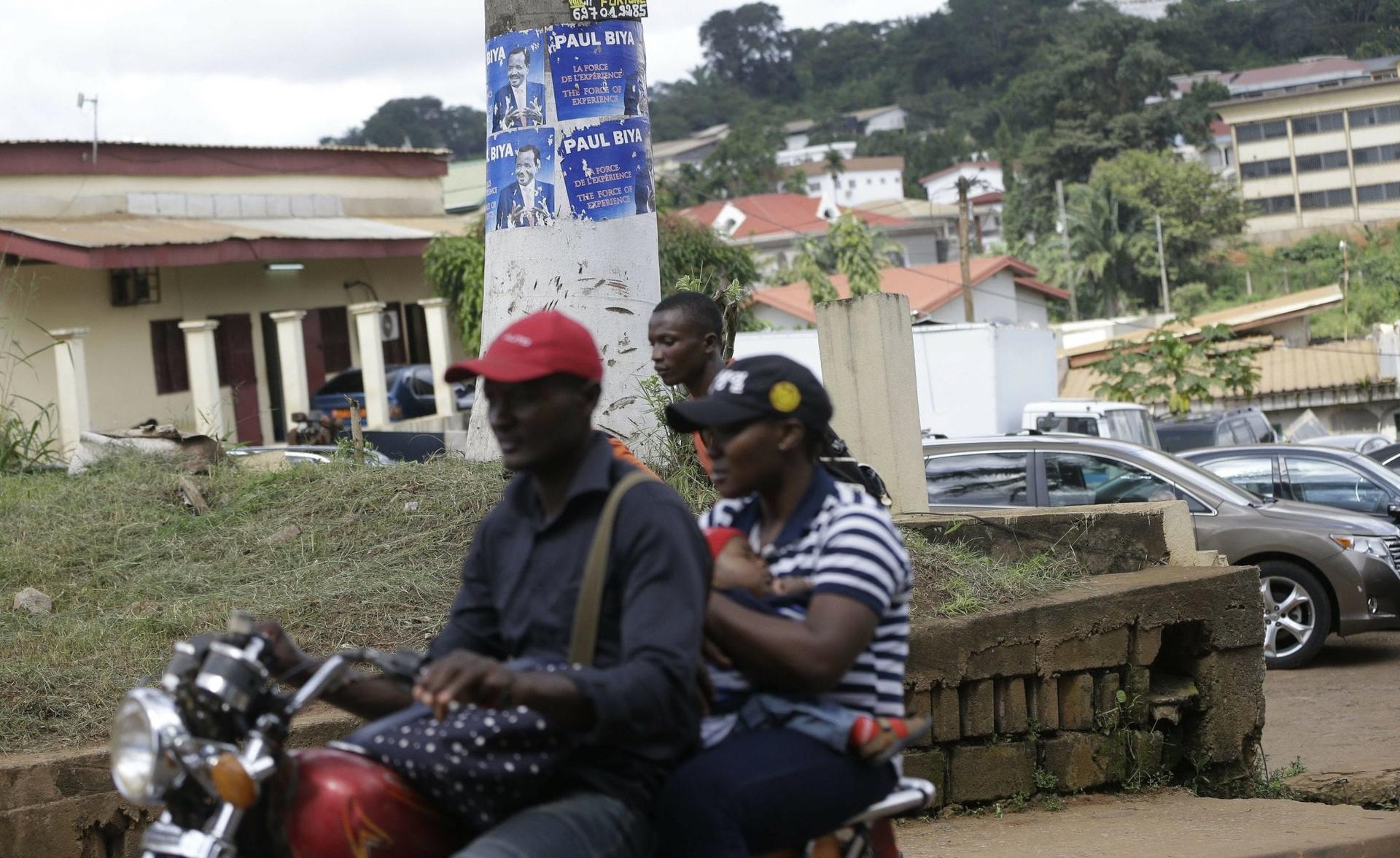YAOUNDÉ, Cameroon – Catholic bishops are among those voicing concern over the conduct of the Oct.7 presidential elections in Cameroon.
President Paul Biya’s ruling Cameroon People’s Democratic Movement (CPDM) party has been accused of massive electoral fraud to keep the 85-year-old leader in office for another seven years. Biya is Africa’s longest serving president, having entered office in 1982.
However, a split opposition meant the leader will probably stay in office even without any election irregularities.
Biya was challenged by seven other candidates. Despite this fractured response to Biya, the main opposition leader, Maurice Kamto, has claimed victory in the poll, despite the fact official results won’t be released until Oct. 22.
In an Oct. 9 statement signed by the president of the bishops’ conference, Archbishop Samuel Kleda, the bishops acknowledged the fact that the election was peaceful but said there were still a large number of organizational shortcomings which raises fears of a backlash.
The bishops noted in particular that Cameroon’s Anglophone crisis cast a shadow on the election.
The African nation’s two English-speaking regions have been engulfed in violent clashes dating back to October 2016 when teachers’ and lawyers’ strikes over perceived attempts by the francophone-dominated administration to destroy the Anglo-Saxon-educational and legal systems practiced in Anglophone Cameroon mutated into political demands for independence by the Anglophone minority.
The bishops noted the conflict kept thousands, and perhaps millions, from voting.
They said they regretted that “special polling stations” were not created to enable potential voters fleeing conflict from the country’s North West and South West regions to be able to cast their ballot.
The bishops also decried the duplication of names in some polling stations and the fact that some voters discovered that different people had voted on their behalf.
The bishops also claimed some of their observers were thrown out of some polling stations by overzealous security officials.
Additionally, the bishops protested attempts to corrupt Catholic election observers in some localities; the appearance of the names of dead people on the voters lists; as well as the unilateral decision by the government to “reduce the number of Christian observers from the requested 347 to just 231.”
In view of these issues, the bishops called on the election authorities to “take into account the short-comings noticeable for the better organization of elections in the future.”
They also called on the Constitutional Council – the body in charge of handling post electoral disputes and proclaiming the final results – to show an elevated sense of responsibility and “respect the choice of the Cameroonian people as freely expressed in the ballot box.”
The bishops also cautioned political parties and the competing candidates against any excesses that could jeopardize the country’s already shaky peace.
“In case you win, do not seek to provoke or humiliate your opponents. If you lose, accept defeat and congratulate the victor…that is the law of democracy. Consequently, defeat must not give rise to acts of violence, destruction and vandalism,” the statement said.
Despite the irregularities, international observers have been mostly satisfied with the poll.
The International Mission of African Civil Societies for Peace, Democracy and Good Governance has expressed satisfaction with the organization of the election.
“I have observed elections in African countries for ten years,” Dr. Rock Aurelien Ouangbey told Crux.
“The electoral process in Cameroon is exceptional,” he said.
Ouangbey said that in places like Mali, where he observed a presidential election recently, “ordinary citizens do not witness the counting of votes in polling stations. But here, citizens count alongside [government election officials] and party representatives. The results of polling stations are made known to the voters in their polling stations. That is something I will recommend for other countries.”
Still, the country’s bishops are preaching caution, and say they are worried that the electoral outcomes could trigger violent reactions across the country.
Post-election violence isn’t new to Cameroon. In the aftermath of the 1992 presidential election, parts of the country erupted in violence. Property was destroyed, and people were killed.
“To the Cameroonian people,” the bishops wrote, “defeat should not give rise to acts of violence, pillage and vandalism.”
The bishops are considered by many to be a key to peace in the country, which is 40 percent Catholic.
In May, the Brussels-based International Crisis Group issued a report on Cameroon saying other than the Catholic clergy, “there are few prospective peacemakers.”
“If no one fills that role, the separatist sentiment already voiced by many Anglophones will continue to grow, fueling further violence and exacerbating the ongoing insurgency in the Anglophone regions,” the report said, before noting the 2018 elections could be “a flashpoint.”













